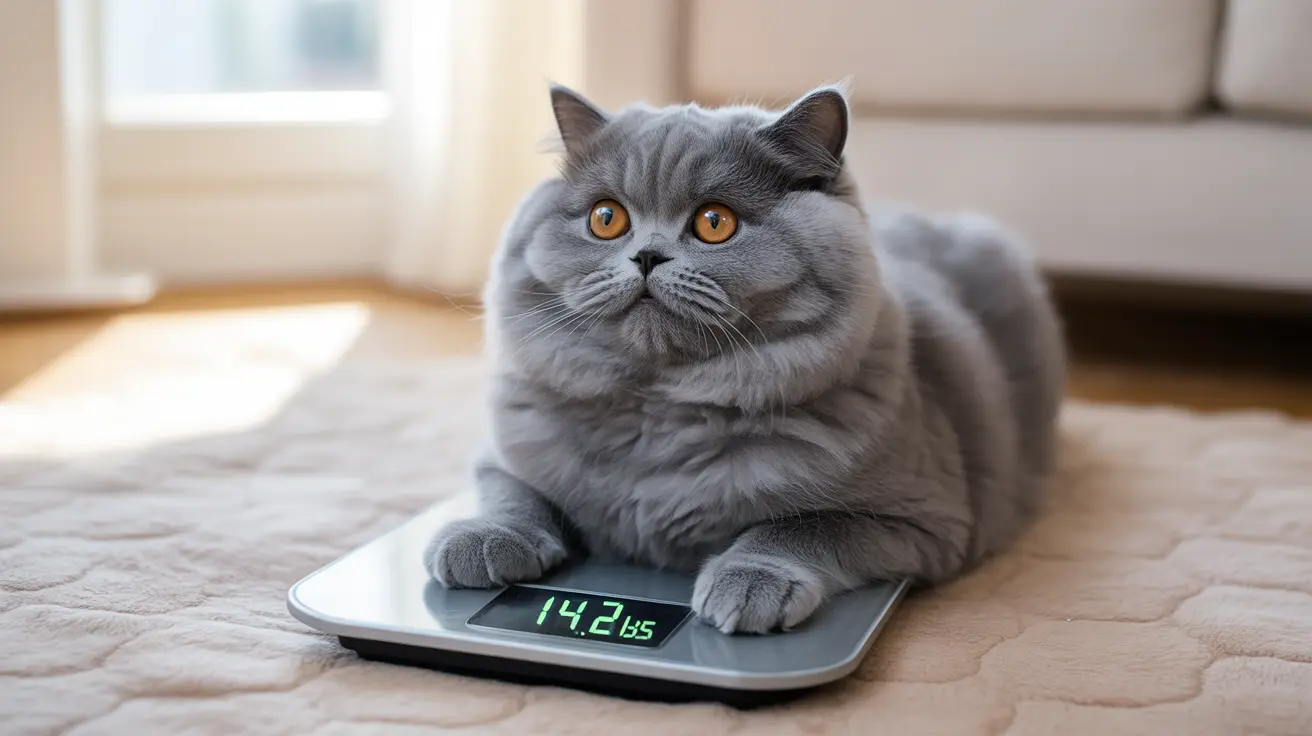猫の肥満が寿命に与える影響
研究によると、猫 肥満 寿命において、肥満の猫は健康体重の猫に比べて明らかに寿命が短くなる傾向があります。適切に体重管理された猫は12〜14年、場合によっては20歳代前半まで生きることがありますが、猫 太りすぎ 影響として肥満の猫は多くの場合5〜10年の間しか生存できません。この寿命の劇的な短縮は、猫 肥満 病気に起因するさまざまな健康合併症によるものです。
研究では、特に8〜12歳の間に、肥満の猫は死亡リスクが2.8倍に増加することが明らかになりました。この生存率の大きな差は、猫 肥満 健康リスクを避けるためにも生涯にわたる健康的な体重維持の重要性を強調しています。
猫の肥満に関連する健康リスク
猫 肥満 症状として、余分な体重は多くの健康問題を引き起こし、寿命に大きな影響を与えます。主な健康リスクは以下の通りです:
- 猫 肥満 糖尿病 リスクを高める糖尿病
- 猫 肥満 心臓病を含む心血管疾患
- 猫 肥満 関節炎などの関節問題
- 尿路系の問題
- 呼吸困難
- がんのリスク増加
- 免疫機能の低下
これらの健康リスクは寿命だけでなく、過体重の猫の生活の質も著しく低下させ、通常の活動を楽しむことや健康を維持することを困難にします。
猫の肥満の見分け方
獣医師は猫 肥満 BCSとは体のコンディションスコアを使って、猫が健康体重かどうかを評価します。9段階のスケールでは:
- 1-3:痩せすぎ
- 4-5:理想的な体重
- 6-7:過体重
- 8-9:肥満
猫 肥満 体型 判断の目安として、理想体重の10〜20%増加は過体重、20%以上増加している場合は肥満とされています。猫 肥満 体重 測り方を定期的に行い、早期に対応することが重要です。
猫の肥満予防方法と体重管理
猫 肥満 予防方法および改善方法として、寿命を延ばすためには積極的な猫 肥満 体重管理が必要です:
- 猫 肥満 食事管理の重要性:適量の食事と計量給餌
- 猫 肥満 運動不足を解消するためのインタラクティブな遊びを促進する
- おやつの制限とバランスの取れた栄養
- 定期的な獣医師の健康診断
- 活動を促す環境の充実
猫 ダイエット 方法はゆっくりと獣医師の監督下で行う必要があります。急激な減量は肝脂肪症などの危険な合併症を引き起こす可能性があるため、猫 肥満 減量 ペースに注意しながら進めることが大切です。
よくある質問
猫が肥満になると寿命はどれくらい短くなりますか?
猫 肥満 寿命の影響として、肥満により寿命が5〜10年ほど短くなる可能性があります。健康な猫が12〜14年以上生きるのに対し、肥満の猫は健康合併症と死亡リスクの増加により5〜10年しか生きられないことが多いです。
太りすぎた猫にはどんな健康リスクがありますか?
猫 肥満 健康リスクとして、糖尿病、心臓病、関節炎、尿路障害、呼吸器問題、がんなどが挙げられます。これらの病気は寿命だけでなく、猫の生活の質にも大きな影響を与えます。
猫が肥満かどうかを見分ける方法はありますか?
猫 肥満 見分け方として、BCS(ボディコンディションスコア)という9段階評価が用いられます。肋骨が容易に触れられ、ウェストが視認できるのが理想的です。肋骨が触れにくく、明らかな脂肪のたるみがある場合は猫が過体重または肥満の可能性があります。
猫の理想的な体重や体型はどうやって判断しますか?
猫 肥満 体型 判断においては、BCSの4〜5が理想体重の範囲です。獣医師による評価を受けるほか、日常的に猫の体型や体重状況をチェックし、健康的な体重維持を心がけましょう。
猫の肥満を予防するためにはどんなことを心がければいいですか?
猫 肥満 予防方法として、適切な食事管理(猫 肥満 食事管理)、定期的な遊びによる運動(猫 肥満 運動不足の解消)、おやつの制限、定期検診が効果的です。また、環境を充実させてストレスなく運動できるようにすることも重要です。
猫が肥満になりやすい原因は何ですか?
猫 肥満 原因として、過剰な食事摂取、運動不足、生活習慣の乱れ、遺伝的要因などが挙げられます。また、ストレスも猫 肥満 ストレスとして肥満の一因となることがあります。
肥満猫の体重管理はどうやって行えばよいですか?
猫 肥満 体重管理には、食事の量をコントロールし(猫 肥満 食事管理)、適切な運動を促し、定期的に体重を測り(猫 肥満 体重 測り方)、獣医師の指導を受けることが重要です。
猫が太りすぎた場合の安全なダイエット方法は何ですか?
猫 ダイエット 方法として、獣医師の監督下でゆっくりと体重を減らすことが推奨されます。急激な減量は避け、食事管理と適度な運動をバランス良く取り入れることが大切です。
猫の肥満によってかかりやすくなる病気は何ですか?
猫 肥満 病気としては主に糖尿病、心血管疾患、関節炎、尿路疾患、呼吸器障害、各種癌が挙げられます。これらの病気は寿命と生活の質の双方に悪影響を与えます。
猫の肥満解消のために有効な運動や遊び方は?
猫 肥満 運動不足を解消するには、インタラクティブな遊びや環境を工夫して、猫が積極的に動けるようにすることが効果的です。連続的な遊びの時間を設けることで、健康的な体重維持につながります。
肥満猫の食事内容はどのように工夫すればよいですか?
猫 肥満 食事管理には、カロリーコントロールをしっかり行い、栄養バランスの取れた食事を少量ずつ与えることが大切です。おやつを制限し、獣医師のアドバイスを受けながら最適なメニューを考えましょう。
猫の肥満が寿命に与える影響を理解し、猫 肥満 生活習慣を見直して積極的に体重管理を行うことで、猫がより長く健康で活動的な生活を送れるよう支援しましょう。






